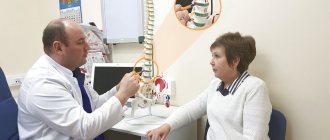Venereology is a field of medicine specializing in sexually transmitted diseases. In the 14th century, the French physician Jean Fernel named these diseases in honor of the goddess of love, Venus, because he saw that love was the cause of everything. In 1974, due to the discovery of a large number of new diseases in this group, WHO experts renamed them STDs (sexually transmitted diseases). A venereologist specializes in the diagnosis, treatment and prevention of STDs.
Nowadays, in venereology, it is customary to distinguish sexually transmitted diseases into “old” and “new”, discovered much later. New ones include viral STIs, as well as chlamydia, trichomoniasis, mycoplasmosis, ureaplasmosis, candidiasis, and gardnerellosis. At the moment, more than 25 types of STDs are known. They are classified according to the type of pathogen and the area affected.
Infections transmitted not only through sexual intercourse, but also through contact and household contact, through blood and from mother to fetus are collectively called STIs, and those transmitted exclusively through traditional sexual intercourse are called STDs.
Sexually transmitted diseases often cause infertility, and after decades of asymptomatic disease they can cause cancer of the genital organs (for example, HPV). A huge number of people in the world are affected by sexually transmitted diseases. The main reason for this is ignorance of methods to prevent infection. Therefore, an important task of venereologists is to conduct educational activities among the population on how to protect themselves. Also, the task of venereologists is to issue certificates of the absence of specific diseases for hiring people and before pregnancy.
What diseases does a venereologist treat?
A venereologist specializes in the treatment of classic sexually transmitted diseases, which include:
- syphilis;
- gonorrhea;
- chancroid (soft chancroid);
- inguinal granuloma;
- urogenital chlamydia;
- inguinal lymphogranulomatosis;
- genital herpes;
- urogenital trichomoniasis.
But infectious lesions of the genital organs can also be caused by other pathogens. And they can also be transmitted from person to person through sexual contact. Such diseases can be treated by a venereologist, an infectious disease specialist, a gynecologist, a urologist and other specialists. More often they work together, and in the case of AIDS, an immunologist is also involved. However, the list of diseases listed above is treated only by a venereologist, since they are considered classic venereal diseases.
What does a venereologist treat?
Venereal diseases are transmitted sexually.
These include bacterial, viral, protozoal and fungal infections.
This group of pathologies is dealt with by a venereologist.
The main diseases he has to deal with:
- syphilitic infection;
- gonorrhea;
- chlamydial infection;
- genital herpes;
- ureaplasmosis;
- mycoplasmosis;
- gardnerellosis;
- candidiasis;
- trichomoniasis.
Some other sexually transmitted diseases also occur in countries with tropical climates.
Most people consult a venereologist with the following symptoms:
- discharge from the genitourinary organs;
- rash in the genital area (vesicles, spots, papules, ulcers);
- problems with urination (painful, difficult, frequent);
- painful sexual intercourse;
- bloody discharge from the genital tract after sex.
A venereologist can diagnose some diseases for which sexual transmission is not the main route, but one of the possible ones.
These are primarily hepatitis B, C and HIV.
But if detected, a doctor of this specialization in most cases does not treat such patients, but refers them to an infectious disease specialist.
What symptoms should you consult a venereologist for?
It is advisable to consult a doctor after all unprotected sexual contacts with unverified individuals, since preventing the disease is much easier than treating it. It is better to contact in the first few hours, since treating the genitals with popular antibacterial agents does not destroy viruses and fungi.
You should also contact a venereologist if you have the following symptoms:
- itching of the genital mucosa and the skin around them;
- discharge unusual in consistency, color and smell;
- burning in the genitals;
- enlarged inguinal lymph nodes;
- the formation of spots and growths on the mucous membrane of the genital organs and the skin around them;
- pain when urinating,
- rashes in the genital area;
- the appearance of ulcers and transparent blisters in the inguinal localization;
- sudden pain during sexual intercourse.
Such symptoms should not be ignored, since as the disease develops it becomes more and more difficult to treat, requiring much larger doses of antibiotics. In addition, you should not prescribe antibiotic treatment yourself, as this can cause complications in other organs of the body and create an antibiotic-resistant form of sexually transmitted disease, which will subsequently be very difficult to cure. If you have constant sexual activity with one person, after detecting unpleasant symptoms in one partner, you can immediately go to the doctor together, since the second one is probably also infected, although he may not have symptoms.
Why is it important to regularly visit a dermatovenerologist?
According to the Ministry of Health of the Russian Federation, over the past 10 years, the overall incidence of sexually transmitted infections has decreased by 64%. This positive indicator is associated, first of all, with active work to inform the population about the risks associated with carriage of this group of diseases, as well as an increase in the volume of preventive and diagnostic measures implemented by the state.
It is known that many types of STIs are asymptomatic and can lead to serious consequences for reproductive health, so if you have regular sexual activity, it is important to visit a specialist at least once a year for preventive purposes. Any type of STI requires immediate and professional treatment, since many diseases in this group are associated with a high risk of complications, such as various infectious and inflammatory diseases of the genital organs and even infertility - in both men and women.
How to choose a good venereologist
The clinic and the doctor himself must have documents confirming the right to provide specific services. A good sign is the presence of award certificates, victories in clinic competitions, etc. It is better to choose a venereologist with more than 10 years of experience in this specialty. During this time, the specialist manages to obtain a sufficient level of awareness. If a doctor has a scientific degree, this is also a big plus for him.
A good doctor guarantees the anonymity of treatment and will not disseminate information about the patient. Also, he does not blame patients for contracting a disease or lifestyle, but will definitely conduct a consultation about the ways of spreading infections and precautions to prevent them.
What does a venereologist do during an appointment?
The task of a specialist in venereological diseases is:
- identification of the causative agent of an infectious disease;
- assessment of the topic of damage to the structures of the urogenital tract;
- diagnosis of complications;
- establishing the stage of the inflammatory process, the duration of infection;
- prescribing treatment and monitoring its effectiveness;
- carrying out medical procedures (urethral tamponade, instillations, prostate massage, etc.);
- cure control.
What the dermatovenerologist will do at the appointment depends on why you are coming to him, whether this is your first visit or a repeat one.
Most patients visit a venereologist when symptoms from the genitourinary system appear.
The doctor listens to the patient's complaints.
He asks clarifying questions.
They can relate to both the symptoms and characteristics of the current disease, as well as recent events, past illnesses, lifestyle, etc.
Then the consultant venereologist examines the genital organs, if they are the source of the symptoms.
At this stage of diagnosis, the doctor can detect rashes, discharge, signs of inflammation (tissue swelling, redness).
The doctor palpates the tissue.
He can determine their pain.
Sometimes it is possible to identify enlarged lymph nodes.
If there are elements of the rash, the doctor checks whether they are soft or hard, and whether they change color when pressed.
Sometimes a diagnosis can be made already at the stage of clinical examination.
Some pathologies have pathognomonic (unique, characteristic only for them) symptoms.
These include:
- syphilis;
- herpes;
- papillomavirus.
Often, based on the characteristic clinical manifestations, the doctor is able to suspect gonorrhea, candidiasis or trichomoniasis.
But in any case, laboratory diagnostics are required to confirm the diagnosis.
Therefore, the venereologist takes tests from the patient.
Smears from the urogenital tract are examined.
If necessary, the doctor can refer the patient for a blood test and an ultrasound of the genital organs.
A venereologist can perform endoscopic examinations if necessary.
Treatment is sometimes prescribed immediately.
But more often this is done after receiving the results of laboratory tests.
They usually take 1 day.
Therefore, the next day, at a follow-up appointment with a venereologist, a treatment regimen is selected.
Its results are monitored through medical examinations and tests.
2 weeks after completion of therapy, smears are taken to confirm cure.
How to prepare for your appointment
To make a diagnosis, you will need to be tested for infections. In order for the results to be accurate, the body must be prepared in advance. Rules for preparing for taking material for analysis:
- abstaining from sexual intercourse 3 days before taking smears;
- exclusion of all medications that may affect research results (antibiotics, vaginal suppositories, hormonal drugs, antihistamines and anti-inflammatory ointments and creams);
- abolishing fatty foods and alcohol the day before taking a test for syphilis, as this may cause false positive results;
- lack of urination 3–4 hours before taking a smear;
- women should not be tested for STIs during menstruation; the optimal period is considered to be several days after menstruation;
- You should not wash your genitals with soap, shampoo or other means the day before taking smears;
In some cases, with a latent and erased form of the disease, the doctor may prescribe a kind of “provocation” before the tests - measures to reduce local immunity so that the pathogen becomes more active. To do this, it is recommended, on the contrary, three days before taking the material to start consuming spicy and salty foods, as well as alcohol. This leads to temporary activation of microorganisms and an increase in their numbers, so that they can be detected during research.
How does the first appointment go?
The first stage of an appointment with a venereologist is taking an anamnesis, that is, compiling a medical history. To do this, the doctor interviews the patient in detail about when the disease began, what symptoms it has, whether there were suspicious sexual contacts, etc. Moreover, the absence of casual sexual intercourse does not at all serve as a guarantee against infection, since the infection may well be brought by a spouse or regular partner , and the patient himself will not be aware.
A separate aspect of the work of a venereologist is confidentiality. The doctor is prohibited from recording the consultation on video and audio, as well as photographing manifestations of the disease without the patient’s consent.
After a detailed interview with the patient, the venereologist proceeds to a physical examination of the patient. First he examines externally, then with the help of instruments. During the examination, the specialist takes smears for analysis, and if the patient has not yet prepared for the tests, he explains how to do this, and takes the smears at the next appointment. The first visit ends with the appointment of a list of laboratory tests, the results of which the patient must bring to the next appointment.
What does a dermatologist-venereologist treat?
A venereologist is also a specialist in skin diseases.
This is because they have similar symptoms.
Initially, the patient, when turning to the doctor, does not know whether the rash on his body is the result of infection with a sexually transmitted pathology or is it a manifestation of a dermatological disease.
Rashes manifest as syphilis, herpes, candidiasis, human papillomavirus infection, molluscum contagiosum, and scabies.
A similar rash can appear with many skin diseases: psoriasis, lichen planus, dermatophytosis, various types of dermatitis.
All these and many other pathologies are diagnosed and treated by a dermatologist-venereologist.
He also practices aesthetic medicine.
You can contact this specialist to remove condylomas, warts, keratomas, nevi and other formations that are not dangerous to health, but worsen a person’s appearance.
Is a venereologist a female doctor or a male one?
Some are convinced that a venereologist is a male doctor.
Others, seeing a gynecological chair in his office, are convinced that this is a women's specialization.
In fact, this doctor is “unisex”.
It caters to patients of all genders.
Because men and women are equally susceptible to sexually transmitted infections.
It cannot be otherwise, because they transmit these diseases to each other during sex.
Perhaps the dermo-venereologist sees men a little more often.
This is due to the fact that women's problems are often solved by gynecologists.
There are quite a lot of them.
Most women deal with their doctor on a regular basis.
Therefore, if discharge or other suspicious symptoms appear, they prefer to go to a specialist whom they know well.
This is partly responsible for numerous failures in the treatment of sexually transmitted pathologies.
Gynecologists are specialists of a fairly wide profile.
Therefore, they do not always know and understand all the specifics of sexually transmitted infections.
In case of infection with an STD, it is better for both men and women to consult a venereologist.
What tests can a venereologist prescribe?
- Microscopic examination of a smear. This is the easiest and fastest way to determine the presence of pathogens, but if the disease is currently in remission, then the pathogens may not be seen in this way. Then more accurate analytical methods will be required.
- PCR smear analysis. Using a polymerase chain reaction, the presence of DNA or RNA of the desired microorganism is determined. Analysis requires at least a day.
- ELISA. In the case of sexually transmitted diseases, an enzyme-linked immunosorbent test is not always sufficiently informative, since antibodies in the initial stages of the disease are not yet present in the bloodstream. But for chronic diseases it gives good results, and is also used to monitor treatment and relapses.
- Sowing on flora. A smear of genital discharge is placed on nutrient flora, where microorganisms multiply intensively. As a result, they can be detected with high probability. The method has high diagnostic accuracy and is very useful for effective treatment, but cultivating bacteria requires from 3 to 7 days. Antibiotics are then tested on the grown flora and determined which one destroys it most effectively.
At an appointment with a dermatovenerologist, the following is carried out:
- Diagnosis and therapy of skin diseases of various origins
- Early diagnosis of skin tumors
- Diagnosis and treatment of sexually transmitted infections
- The latest techniques in the treatment of nail diseases
- Removal of benign skin formations, warts, molluscum contagiosum (cryodestruction, radio wave surgery with the Surgitron apparatus)
To diagnose diseases, traditional and modern methods are used (cytological and histopathological examination, microbiological studies - microscopy, bacteriological and virological methods, molecular genetic studies, immunological methods, allergological methods), as well as instrumental diagnostic techniques that allow timely diagnosis of such diseases:
- Allergic dermatoses (contact dermatitis, allergic dermatitis, eczema, atopic dermatitis, neurodermatitis, urticaria)
- Fungal diseases of nails, smooth skin and scalp
- Bacterial skin infections (pyoderma)
- Erythema infectious, parainfectious, reactive
- Diseases of the sebaceous and sweat glands (acne, hyperhidrosis, recurrent hidradenitis)
- Nail diseases (infectious and non-infectious etiology)
- Hair loss (alopecia)
- Psoriasis
- Dyschromia (vitiligo)
- Seborrheic dermatitis
- Herpes, viral warts, genital warts
- Lichen planus
- Scleroderma
- Angiitis
- and many other chronic dermatoses.
For early, accurate and objective diagnosis of skin diseases and skin formations, a non-invasive diagnostic method is used - dermatoscopy: the skin is examined without surgery under magnification in order to clarify the diagnosis and for the early diagnosis of malignant skin tumors.
The Federal Scientific Clinical Center provides comprehensive treatment (including various types of physiotherapeutic procedures) for skin diseases and sexually transmitted infections (STIs).
In the conditions of the physiotherapy department, therapy is carried out in the following areas: electrotherapy (electrophoresis, phonophoresis, magnetotherapy, inhalation therapy, ultraviolet irradiation, thermal procedures, EHF, EHF, ultrasound therapy.); polychrome light therapy; hydrotherapy; cryotherapy; reflexology, etc.
Treatment methods
Treatment for STDs must be individually adjusted, as patients' bodies can react very differently. There are different strains of microorganisms, some of which are easier to destroy with antibiotics, others are much more difficult and constantly recur. In addition, the doctor must take into account a number of aspects: pregnancy, lactation, gender, age.
The venereologist uses a number of treatment methods, the first place among which is antibiotic therapy. Not all groups of antibiotics are effective against certain microorganisms; the sensitivity of bacteria can be checked by sowing the flora or directly by observing the effect of treatment. Antibiotics can be given orally or as topical treatments that only affect the affected area.
For chronic, protracted diseases and relapses, the doctor prescribes immunotherapy with biogenic stimulants, vitamins, immunomodulators and tissue regeneration stimulators. Additionally, some methods of physiotherapy are used: electrophoresis, darsonval, laser therapy, UHF therapy, phonophoresis, inductothermy, etc.
During the course of treatment, the doctor constantly monitors the patient on an outpatient basis and closely monitors the body’s reaction to the methods used. Repeated tests are performed periodically and when they become “clean”, the treatment is considered complete. But, for some time, the patient is observed by a venereologist for relapses (in the case of syphilis, this period is six months or more).
Recommend a good venereologist
Finding a good venereologist is not easy.
If you use the Internet or have been to medical forums, you know that many patients have been treated for sexually transmitted diseases literally for years.
They are seen by different doctors.
They take different medications, sometimes for a month or more.
But the disease does not go away or returns quickly after treatment.
This is due not only to insidious diseases, but also to an incorrect approach to patient management.
In the vast majority of cases, you can get rid of a sexually transmitted disease once and for all.
To do this, you just need to find the right doctor who:
- thoroughly examines you;
- take tests to assess the sensitivity of bacteria to antibiotics;
- select the correct treatment regimen using modern, highly effective drugs;
- prescribe additional medications that increase the effectiveness of antibiotic therapy;
- will perform procedures to destroy infectious agents at the site of inflammation;
- will conduct adequate laboratory monitoring of the success of treatment.
Most patients are treated by a venereologist in a clinic or a skin and venereology clinic.
This help is free for them.
However, it is not always of high quality.
There are several reasons for this:
1. Lack of time.
The venereologist at the state clinic has a lot of people in front of his office.
He can devote only a few minutes of time to each patient.
Within a short period of time, the doctor must examine you, interview you, and fill out medical documentation.
Not every doctor can work effectively in such conditions.
There is no need to talk about an individual approach at all.
2. Not the best doctors.
Clinics often employ young specialists or older, unmotivated doctors awaiting retirement.
Those who achieve certain professional successes quickly go to private clinics or engage in private practice.
The reason is obvious: government salaries for doctors are very small.
Therefore, such clinics often employ people who are not in demand in private medical centers, or who themselves do not strive for professional growth.
Of course, there are also talented doctors in state medical institutions.
But there are far fewer of them, so the chances of you getting lucky are much lower.
3. Quality of analyses.
Many patients remain underexamined.
The financial capabilities of public clinics are limited.
Doctors strive to save money by prescribing tests that are not the most accurate, but the cheapest.
Hence the frequent problems with under-examination of patients.
Other problems of government agencies:
- poor work organization;
- crowds of people in the corridors and hours-long queues;
- the need to take different tests in different rooms, which multiplies the number of queues many times over;
- there is always a risk that you will be hospitalized;
- it is not always possible to actually maintain anonymity;
- doctors are not very polite and respectful towards patients;
- painful procedures, painful collection of smears from the urogenital tract.








